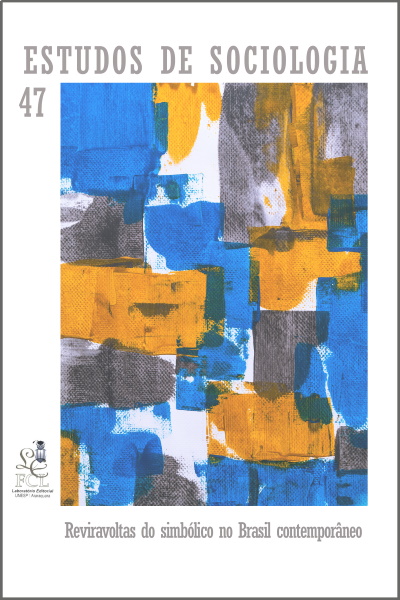Metamorphoses of symbolic in rural Brazil - The transformations of the early 21st century seen through a classic character of Brazil configuration, the “caipira” (country man)
DOI:
https://doi.org/10.52780/res.13262Keywords:
Modes of Domination, Symbolic Power, New Rurality,Abstract
In the analysis of Brazilian transfonnations of this 21st century there are polarizations involving the praise of unprecedented changes in the history of the country and the argument about their limited scope in the contemporary crisis. This article circumvents these extremes by stating that the period expresses changes in the bases of domination, here focused on the metamorphoses of the “caipira ” in rural and inland Brazil. This is portrayed in classic studies on Cunha and Bofete (SP) and revisited atpresent, highlighting three aspects: the 2000s recompose the “caipira’in the social hierarchy, combining changes and updates of old structures of domination; new ruralities show heterogeneous processes of preservation of the “caipira's” autonomy and tradition under theforms of contractualization of capitalist rationality and of the urban and post-industrial world; aspects emphasized by the classics of Brazilian configuration are supported if understood from the perspective of metamorphoses and material and symbolic articulations, interdependencies between local and extra local, and interpenetrations between past and present.Downloads
Download data is not yet available.
Downloads
Published
29/01/2020
How to Cite
KLEEB, S.; FAVARETO, A. Metamorphoses of symbolic in rural Brazil - The transformations of the early 21st century seen through a classic character of Brazil configuration, the “caipira” (country man). Estudos de Sociologia, Araraquara, v. 24, n. 47, 2020. DOI: 10.52780/res.13262. Disponível em: https://periodicos.fclar.unesp.br/estudos/article/view/13262. Acesso em: 28 feb. 2026.
Issue
Section
Dossiê
License

À revista Estudos de Sociologia ficam reservados os direitos autorais pertinentes a todos os artigos nela publicados.
Os artigos publicados e as referências citadas na revista Estudos de Sociologia são de inteira responsabilidade de seus autores.
A Estudos de Socilogia utiliza a licença https://creativecommons.org/licenses/by/4.0/ (CC BY), que permite o compartilhamento do artigo com o reconhecimento da autoria.



